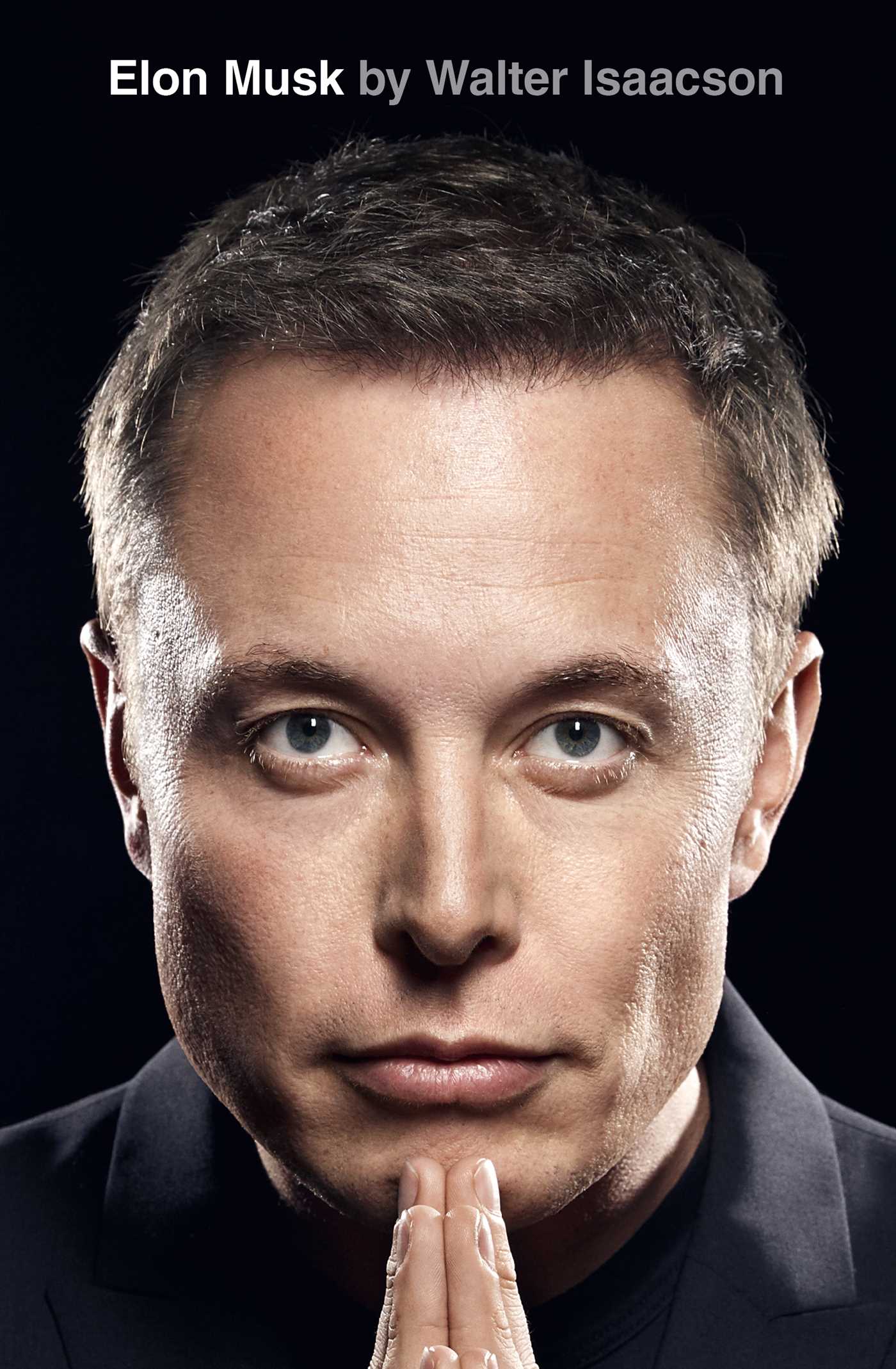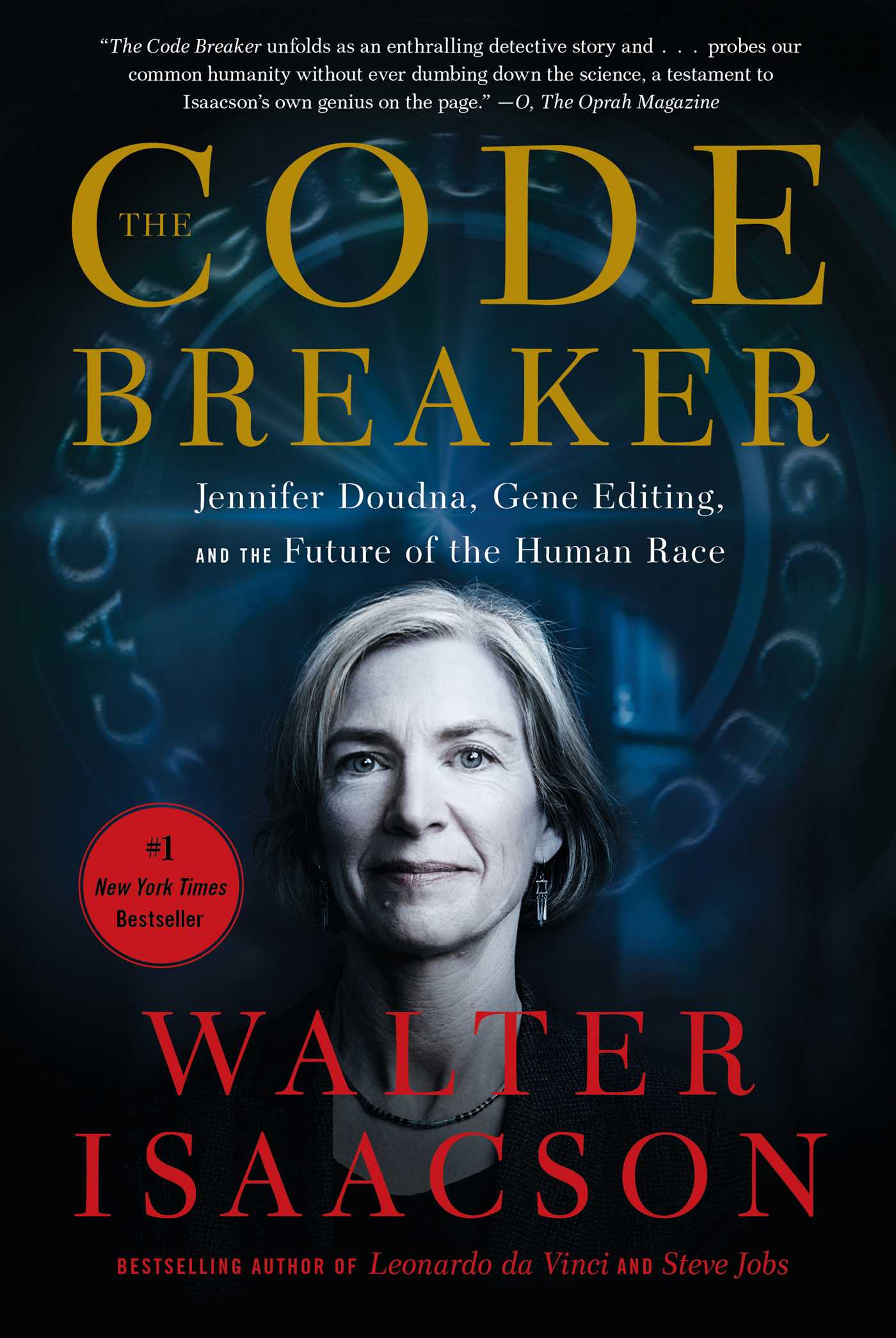ELON MUSK
From the author of Steve Jobs and other bestselling biographies, this is the astonishingly intimate story of the most fascinating and controversial innovator of our era—a rule-breaking visionary who helped to lead the world into the era of electric vehicles, private space exploration, and artificial intelligence. Oh, and took over Twitter.
When Elon Musk was a kid in South Africa, he was regularly beaten by bullies. One day a group pushed him down some concrete steps and kicked him until his face was a swollen ball of flesh. He was in the hospital for a week. But the physical scars were minor compared to the emotional ones inflicted by his father, an engineer, rogue, and charismatic fantasist.
His father’s impact on his psyche would linger. He developed into a tough yet vulnerable man-child, prone to abrupt Jekyll-and-Hyde mood swings, with an exceedingly high tolerance for risk, a craving for drama, an epic sense of mission, and a maniacal intensity that was callous and at times destructive.
At the beginning of 2022—after a year marked by SpaceX launching thirty-one rockets into orbit, Tesla selling a million cars, and him becoming the richest man on earth—Musk spoke ruefully about his compulsion to stir up dramas. “I need to shift my mindset away from being in crisis mode, which it has been for about fourteen years now, or arguably most of my life,” he said.
It was a wistful comment, not a New Year’s resolution. Even as he said it, he was secretly buying up shares of Twitter, the world’s ultimate playground. Over the years, whenever he was in a dark place, his mind went back to being bullied on the playground. Now he had the chance to own the playground.
For two years, Isaacson shadowed Musk, attended his meetings, walked his factories with him, and spent hours interviewing him, his family, friends, coworkers, and adversaries. The result is the revealing inside story, filled with amazing tales of triumphs and turmoil, that addresses the question: are the demons that drive Musk also what it takes to drive innovation and progress?
THE CODE BREAKER:
Jennifer Doudna, Gene Editing, and the Future of the Human Race
In the spring of 2012, the Berkeley biochemist Jennifer Doudna and her collaborators turned a curiosity of nature into an invention that will transform the future of the human race: an easy-to-use tool that can edit DNA. Known as CRISPR, it opened a brave new world of medical miracles and moral questions. It has already been deployed to cure deadly diseases, fight the coronavirus pandemic of 2020, and make inheritable changes in the genes of babies.
The development of CRISPR and the war against coronavirus will hasten our transition to the next great innovation revolution. The past half-century has been an information-technology era, based on the microchip, the computer, and the internet. Now we are entering an even more momentous era, a life-science revolution. Children who study digital coding will be surpassed by those who study the code of life.
Should we use our new evolution-hacking powers to make us less susceptible to viruses and eliminate dreaded disorders? What a wonderful boon that would be! Right? And what about preventing congenital deafness or blindness? Or being very short? Or being depressed? Hmmm…How should we think about that? Should we allow parents, if they can afford it, to enhance the IQ or height or memory or muscles of their kids?
After helping to discover CRISPR, Doudna became a leader in wrestling with these moral and policy issues. Her life story illustrates that the key to innovation is connecting basic science to our everyday lives—moving discoveries from our labs to our bedsides—in ways that respect our moral values. It’s a thrilling detective tale that involves the most profound wonders of nature, from the origins of life to the future of our species.
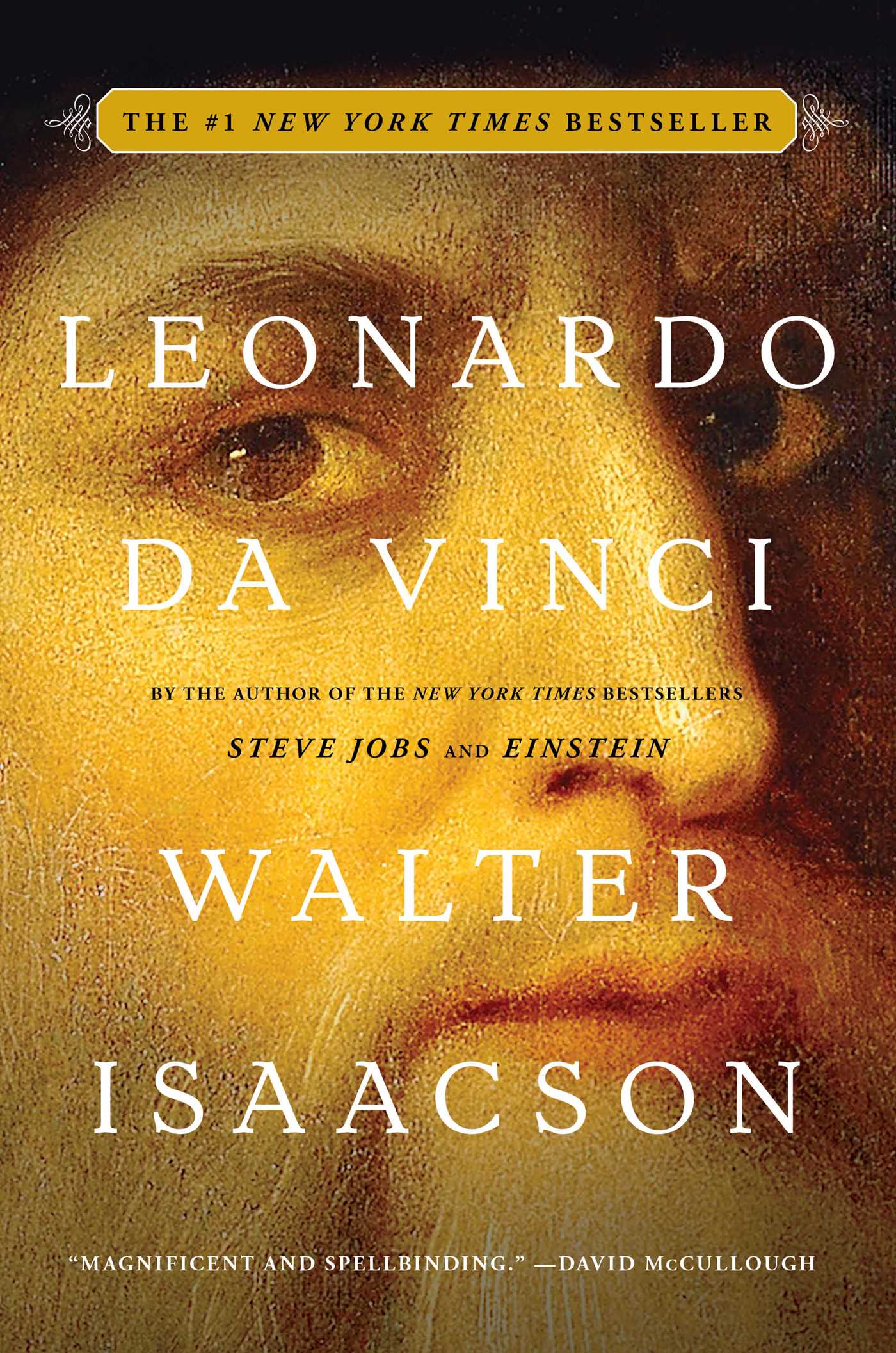
LEONARDO DA VINCI
The author of the acclaimed best sellers Benjamin Franklin, Einstein, and Steve Jobs delivers an engrossing biography of Leonardo da Vinci, the world’s most creative genius.
Leonardo da Vinci created the two most famous paintings in history, The Last Supper and the Mona Lisa. But in his own mind, he was just as much a man of science and engineering. With a passion that sometimes became obsessive, he pursued innovative studies of anatomy, fossils, birds, the heart, flying machines, botany, geology, and weaponry. His ability to stand at the crossroads of the humanities and the sciences, made iconic by his drawing of Vitruvian Man, made him history’s most creative genius.
Now Walter Isaacson brings Leonardo da Vinci to life, showing why we have much to learn from him. His combination of science, art, technology, and imagination remains an enduring recipe for creativity. So, too, was his ease at being a bit of a misfit: illegitimate, gay, vegetarian, left-handed, easily distracted, and at times heretical. His relentless curiosity should remind us of the importance of instilling, in both ourselves and our children, not just received knowledge but a willingness to question it – to be imaginative and, like talented misfits and rebels in any era, to think different.
THE INNOVATORS
how a group of hackers, geniuses, and geeks created the digital revolution
Following his blockbuster biography of Steve Jobs, The Innovators is Walter Isaacson’s revealing story of the people who created the computer and the Internet. It is destined to be the standard history of the digital revolution and an indispensable guide to how innovation really happens.
What were the talents that allowed certain inventors and entrepreneurs to turn their visionary ideas into disruptive realities? What led to their creative leaps? Why did some succeed and others fail?
In his masterly saga, Isaacson begins with Ada Lovelace, Lord Byron’s daughter, who pioneered computer programming in the 1840s. He explores the fascinating personalities that created our current digital revolution, such as Vannevar Bush, Alan Turing, John von Neumann, J.C.R. Licklider, Doug Engelbart, Robert Noyce, Bill Gates, Steve Wozniak, Steve Jobs, Tim Berners-Lee, and Larry Page.
This is the story of how their minds worked and what made them so inventive. It’s also a narrative of how their ability to collaborate and master the art of teamwork made them even more creative.
For an era that seeks to foster innovation, creativity, and teamwork, The Innovators shows how they happen.
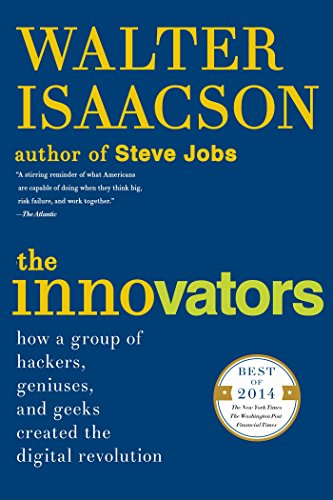
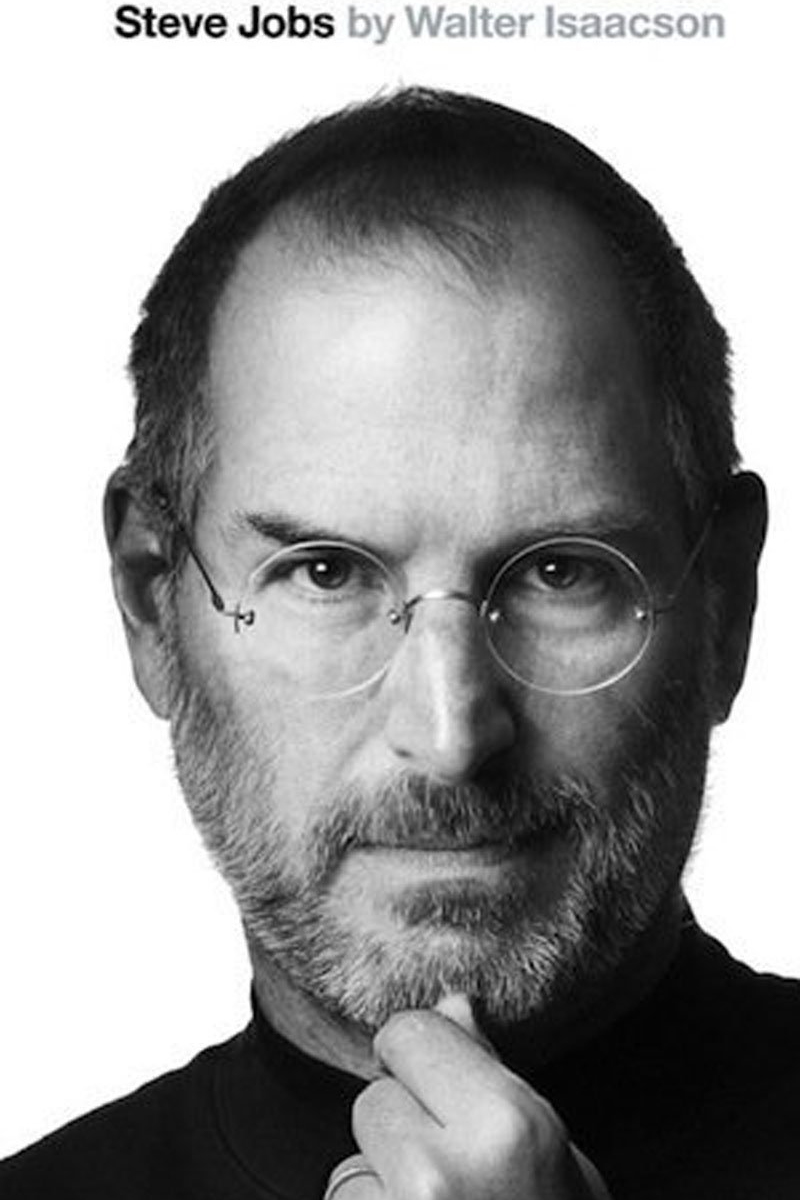
STEVE JOBS
Based on more than 40 interviews with Jobs conducted over two years – as well as interviews with more than a hundred family members, friends, adversaries, competitors, and colleagues – Walter Isaacson has written a riveting story of the roller-coaster life and searingly intense personality of a creative entrepreneur whose passion for perfection and ferocious drive revolutionized six industries: personal computers, animated movies, music, phones, tablet computing, and digital publishing.
At a time when America is seeking ways to sustain its innovative edge, and when societies around the world are trying to build digital-age economies, Jobs stands as the ultimate icon of inventiveness and applied imagination. He knew that the best way to create value in the 21st century was to connect creativity with technology. He built a company where leaps of the imagination were combined with remarkable feats of engineering.
Although Jobs cooperated with this book, he asked for no control over what was written. He put nothing off-limits. He encouraged the people he knew to speak honestly. And Jobs speaks candidly, sometimes brutally so, about the people he worked with and competed against. His friends, foes, and colleagues provide an unvarnished view of the passions, perfectionism, obsessions, artistry, devilry, and compulsion for control that shaped his approach to business and the innovative products that resulted.
Driven by demons, Jobs could drive those around him to fury and despair. But his personality and products were interrelated, just as Apple’s hardware and software tended to be, as if part of an integrated system. His tale is instructive and cautionary, filled with lessons about innovation, character, leadership, and values.
AMERICAN SKETCHES:
Great Leaders, Creative Thinkers, and Heroes of a Hurricane
In this collection of essays, the brilliant, acclaimed biographer Walter Isaacson reflects on lessons to be learned from Benjamin Franklin, Albert Einstein, Bill Gates, Henry Kissinger, Ronald Reagan and Mikhail Gorbachev, Hillary Clinton and Bill Clinton, and other interesting characters he has chronicled both as biographer and journalist. He writes also about how he became a writer, the challenges for journalism in the digital age, and offers loving tributes to his hometown of New Orleans.


EINSTEIN: HIS LIFE AND UNIVERSE
How did Einstein’s mind work? What made him a genius? Isaacson’s biography shows how his scientific imagination sprang from the rebellious nature of his personality. His fascinating story is a testament to the connection between creativity and freedom.
Based on the newly released personal letters of Albert Einstein, Walter Isaacson explores how an imaginative, impertinent patent clerk, a struggling father in a difficult marriage who couldn’t get a teaching job or a doctorate, became the mind reader of the creator of the cosmos, the locksmith of the mysteries of the atom and the universe. His success came from questioning conventional wisdom and marveling at mysteries that struck others as mundane. This led him to embrace a morality and politics based on respect for free minds, free spirits, and free individuals.
These traits are just as vital for this new century of globalization, in which our success will depend on our creativity, as they were for the beginning of the last century, when Einstein helped usher in the modern age.
BENJAMIN FRANKLIN: AN AMERICAN LIFE
Benjamin Franklin is the founding father who winks at us – an ambitious urban entrepreneur who rose up the social ladder, from leather-aproned shopkeeper to dining with kings.
In best-selling author Walter Isaacson’s vivid and witty full-scale biography, we discover why Franklin turns to us from history’s stage with eyes that twinkle from behind his new-fangled spectacles. In Benjamin Franklin, Isaacson shows how Franklin defines both his own time and ours.
The most interesting thing that Franklin invented, and continually reinvented, was himself. America’s first great publicist, he was consciously trying to create a new American archetype. In the process, he carefully crafted his own persona, portrayed it in public, and polished it for posterity. His guiding principle was a “dislike of everything that tended to debase the spirit of the common people”. Few of his fellow founders felt this comfort with democracy so fully, and none so intuitively.
In this colorful and intimate narrative, Isaacson provides the full sweep of Franklin’s amazing life, from his days as a runaway printer to his triumphs as a statesman, scientist, and Founding Father. He chronicles Franklin’s tumultuous relationship with his illegitimate son and grandson, his practical marriage, and his flirtations with the ladies of Paris. He also shows how Franklin helped to create the American character and why he has a particular resonance in the 21st century.
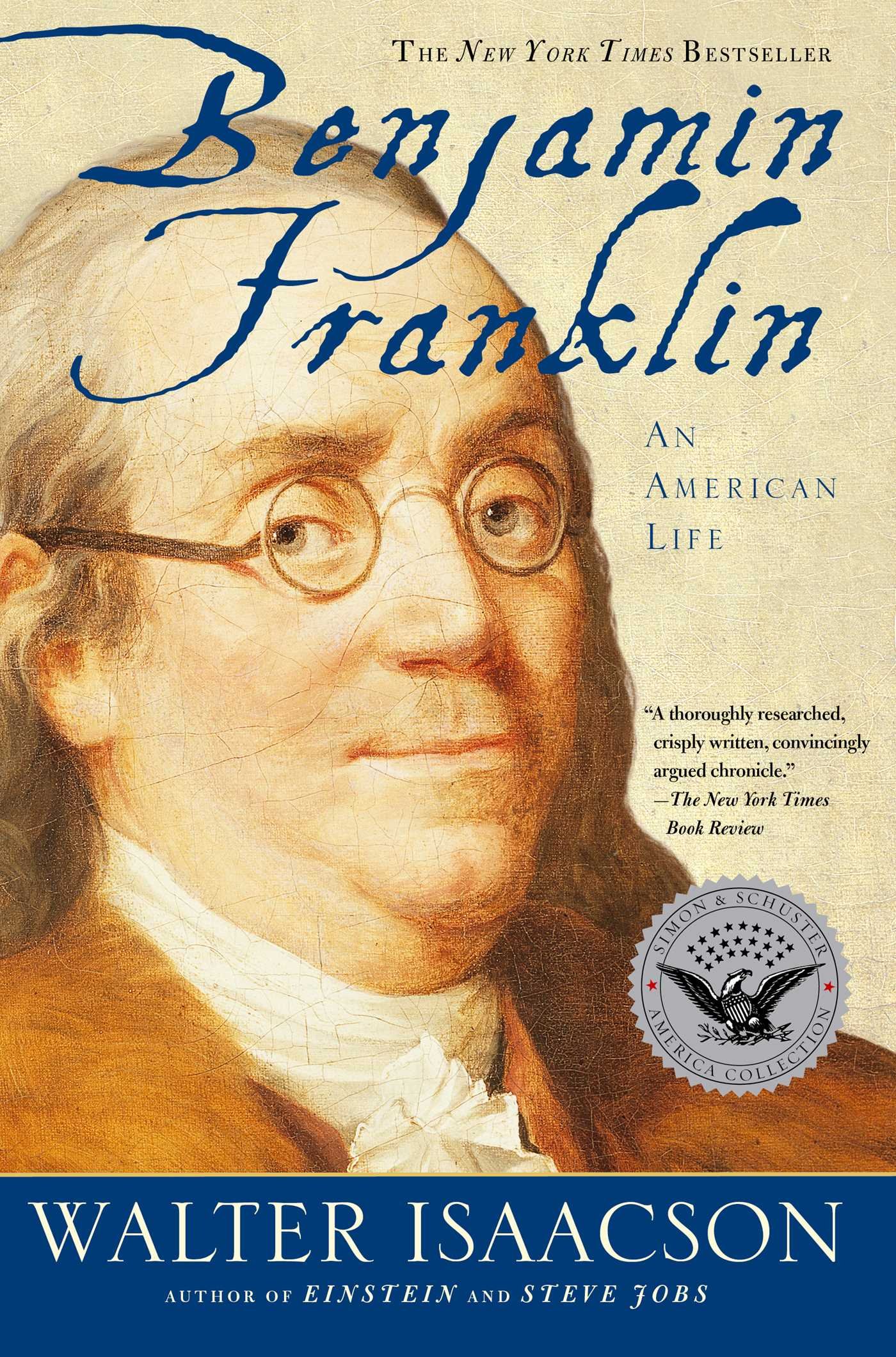
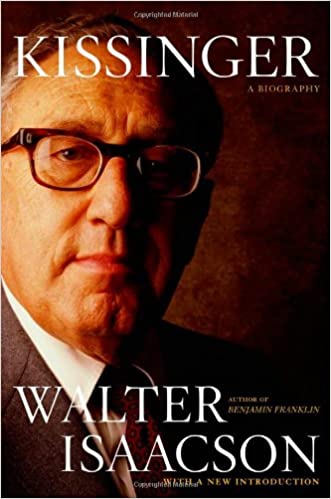
KISSINGER: A BIOGRAPHY
By the time Henry Kissinger was made secretary of state in 1973, he had become, according to a Gallup poll, the most admired person in America and one of the most unlikely celebrities ever to capture the world’s imagination. Yet Kissinger was also reviled by large segments of the American public, ranging from liberal intellectuals to conservative activists.
Kissinger explores the relationship between this complex man’s personality and the foreign policy he pursued. Drawing on extensive interviews with Kissinger as well as 150 other sources, including US presidents and his business clients, this first full-length biography makes use of many of Kissinger’s private papers and classified memos to tell his uniquely American story.
The result is an intimate narrative, filled with surprising revelations, that follows this grandly colorful statesman from his childhood as a persecuted Jew in Nazi Germany, through his tortured relationship with Richard Nixon, to his later years as a globe-trotting business consultant.
THE WISE MEN: SIX FRIENDS AND THE WORLD THEY MADE
A captivating blend of personal biography and public drama, The Wise Men introduces six close friends who shaped the role their country would play in the dangerous years following World War II. They were the original best and brightest, whose towering intellects, outsize personalities, and dramatic actions would bring order to the postwar chaos and leave a legacy that dominates American policy to this day:
Averell Harriman, the freewheeling diplomat and Roosevelt’s special envoy to Churchill and Stalin; Dean Acheson, the secretary of state who was more responsible for the Truman Doctrine than Truman and for the Marshall Plan than General Marshall; George Kennan, self-cast outsider and intellectual darling of the Washington elite; Robert Lovett, assistant secretary of war, undersecretary of state, and secretary of defense throughout the formative years of the Cold War; John McCloy, one of the nation’s most influential private citizens; and Charles Bohlen, adroit diplomat and ambassador to the Soviet Union.


